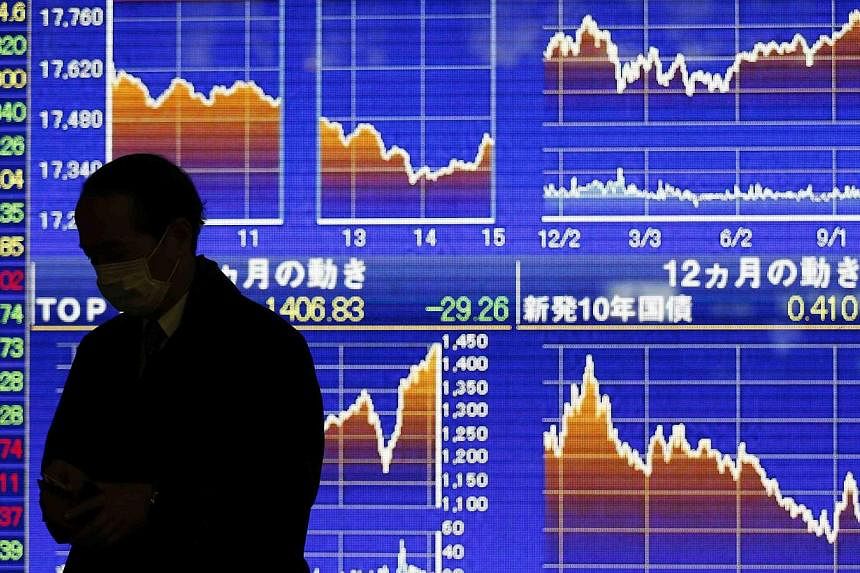TOKYO(Reuters) - Japanese stocks fell on Monday after slumping oil prices toppled Wall Street shares, while investors drew little comfort from Prime Minister Shinzo Abe's landslide win in a snap election over the weekend.
The Nikkei benchmark sagged 0.8 per cent to 17,227.79 by 0136 GMT, after recovering slightly from a trough of 17,037.21 touched shortly after the open.
Last week, U.S. stocks suffered their worst weekly drop for 2-1/2 years, as free-falling oil prices hit the energy and commodities sectors and raised the spectre of falling global demand and deflation.
U.S. crude futures fell as much as 2.5 per cent in early Asian trade on Monday.
"In the short-term, Japanese stocks are responding to the risk-off stance we're seeing abroad," said Mitsushige Akino, chief fund manager at Ichiyoshi Asset Management Co in Tokyo.
Investors are also nervous ahead of the U.S. Federal Reserve's policy meeting, which begins on Tuesday. The Fed is seen as hinting at a move towards raising interest rates.
The US dollar fell as low as 117.78 against the yen, pressuring big-name exporter shares, which are sensitive to fluctuations in the yen-dollar exchange rate and global demand.
Toyota Motor Corp skidded 1.4 per cent, while Nissan Motor Co Ltd also lost 1.8 per cent.
Abe's ruling coalition scored a big election win on Sunday, but the widely-expected victory did little to cheer investors concerned about the Japanese economy and global growth prospects.
The result, sealed after a record low turnout, ensures that Abe will stick to aggressive relationary policies that have boosted the Japanese stock market and weakened the yen since he took power in 2012. Medium to long-term investors hope that the Japanese premier, maintaining his two-thirds 'super-majority', will push through corporate-friendly structural reforms like deregulation.
"The thesis for Japan is that 2015 will deliver escape velocity, and for that the policy parameters are now set," said Jesper Koll, director of research at JP Morgan, citing the Bank of Japan's easing in October and the postponement until April 2017 of a second sales tax hike.
A Bank of Japan's survey, meanwhile, underscored the challenges that face Abe's efforts. The closely-watched tankan poll showed that manufacturers' sentiment fell slightly in the fourth quarter. Firms expect confidence to worsen in the next quarter.

